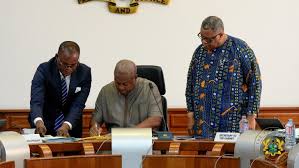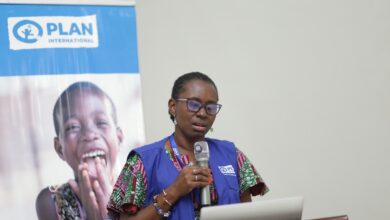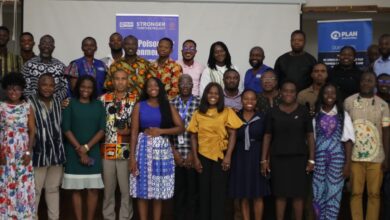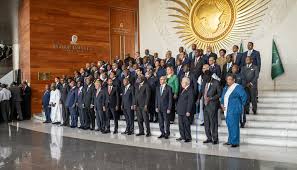Who initiated Presidential Debates in Ghana? Asks Dr Frankie Asare-Donkoh
Who initiated Presidential Debates in Ghana? Asks Dr Frankie Asare-Donkoh
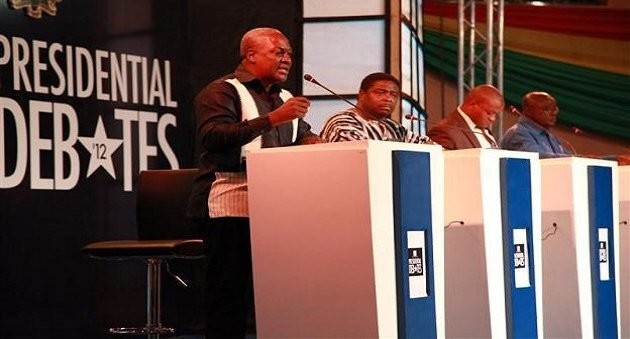
On July 22, 2024, a press release was issued by the Institute of Economic Affairs (IEA), which many local Ghanaian media organisations and foreign-based ones have since reported. The press release was in response to the National Democratic Congress (NDC) Campaign Team’s statement alleging that the IEA’s intended 2024 presidential debate was to do the biding of the New Patriotic Party (NPP).
The IEA is the first public policy think tank established in 1989 and has since contributed immensely to the growth of Ghana’s democracy.
In the release, the IEA claimed that it initiated the presidential debates in Ghana and organised the very first one in 2000.
This claim cannot be true. Presidential debates in Ghana were not initiated by the IEA. The Ghana Journalists Association (GJA) initiated presidential debates in Ghana and organised the very first one in 2000. As the then acting General Secretary of the GJA and substantive Deputy General Secretary, I was the lead contact for the initiation and organisation of the first presidential debate in Ghana in October 2000.
The debate lasted for 90 minutes, and six presidential candidates attended while the then sitting Vice President, Prof J. E. A. Mills of the NDC declined to participate. The candidates were John Agyekum Kufour of the NPP, Edward Mahama of the People’s National Convention (PNC), and George Hagan of the Convention People’s Party (CPP). The rest were Augustus Obuodum (Goosie) Tandoh of the National Reform Party (NRP), Dan Lartey of the Great Consolidated Popular Party (GCPP), and Charles Wereko-Brobby of the United Ghana Movement (UGM).
The GJA organised the 2000 presidential debate with the support of the United States-based Freedom Forum with the Ghana Broadcasting Corporation (GBC) as a key partnerproviding the live broadcast. The Economist magazine did a piece on the presidential debate on November 16, 2000, reporting correctly that the debate was organised by the GJA and the US-based Freedom Forum (see the story here:
https://www.economist.com/international/2000/11/16/a-tiny-but-unusual-debate-in-ghana)
After that one, the IEA took over the organisation of the presidential debates and has consistently and excellently been organising the debates in all presidential elections except in 2020 when, I believe, because of the Covid, no debate was held prior to the election.
As somebody who was the first journalist to cover anyprogramme by the IEA right from 1989 and followed with several other coverages of the institute’s activities, and also briefly worked for the institute later, I have so much respect for the IEA and its enviable achievements over the years.
This my intervention, is therefore, only to correct a historical inaccuracy that credit the initiation of presidential debates in Ghana and the organisation of the first presidential debate to the IEA instead of the GJA. It was the GJA then with Mrs Gifty Affenyi-Dadzie as the president which initiated and organised the first presidential debate in 2000 and not the IEAwhen
Shockingly, some academics who have written and published articles on Ghana’s 2000 elections erroneously credited the IEA with the organisation of the presidential debate. I wish they would be humble enough to effect the necessary correction in their future publications. The IEA could also take steps to correct the erroneous attribution in their records,publications, and its website.
It is sad that the GJA seems to suffer from loss of institutional memory and has also shown lack of proper documentation of its activities and achievements, hence it has not bothered to correct this historical inaccuracy and misrepresentation, allowing some academics, writers, and even journalists to write in their stories that presidential debates were initiated by the IEA and it also organised the first one in 2000.
The IEA, like many other organisations in Ghana, and alsosome foreign ones, can be credited with several programmes and initiatives which in no small way have contributed to the deepening of Ghana’s democratic culture and credentials.
As we continue to build our country’s political history, it is very important that we are thorough and factual in attributing achievements to their deserving initiators and practitioners. In this way, we collectively build a society whose historical records give future generations a true account of events of the past.
There is every indication that the GJA, the umbrella body of Ghanaian journalists, lacks proper record-keeping and for that matter there is the need for the association to commission a thorough research of its activities since its inception in 1948to enable it build a full historical account for posterity.
Several leaders of the GJA from different generations are still alive and the current leadership could tap into their skills and talents as well as individual memories to help build a solid historical record of where the GJA started, and what it has gone through over the years, to help current and future members properly focus on how to build on its achievements.
Author is a former Deputy General Secretary (1996-2001) &Acting General Secretary (2000)
Author’s e-mail: fasado@hotmail.com

